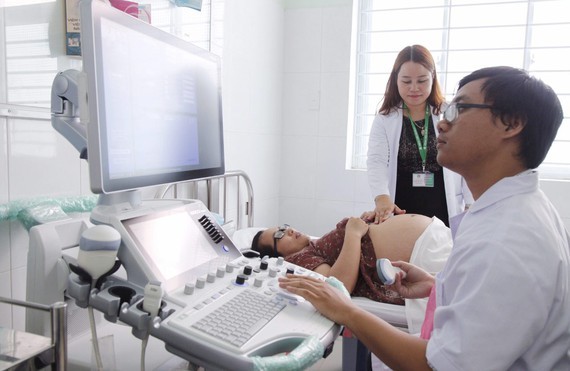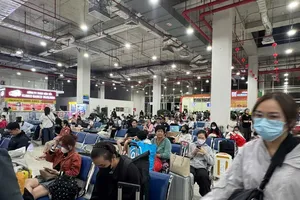
According to statistics from the General Office for Population and Family Planning under the Ministry of Health, Ho Chi Minh City’s fertility rate presently is 1.39 children, significantly lower than Vietnam's replacement-level fertility of 2.09 children.
Women have been postponing motherhood or having more children these days. The issue has been ascribed to everything from career success to the cost of urban housing. Many working mothers have no choice but become a stay-at-home mom after giving a baby.
For instance, a 36-year-old Le Thi Phuong Thao in District 8 had to quit her dream job – as a nurse – to stay at home for taking care of her newborn. She shared that it is not simple to hire a trust babysitter; therefore, she must off-ramp for a period of time and then return to her old job. Being questioned about her plan for the second baby, she affirmed to have only one baby.
Meantime, others delay childbearing due to not having enough money. Tran Thi Hien, 30, and her husband temporarily residing in a rented house in District 3 still hesitate about having babies though they have been married for more than two years.
She shared they come from a distant province and settle down in HCMC; therefore, they decided not to have babies soon because their economic condition is not good enough to feed a baby. She added that she will have only one child.
Even young people in the southern metropolis don’t want to get married and have babies because they want to have high position in their career while getting back into the workforce after taking maternity leave or a few years off to raise children is difficult to overcome. 27-year-old Nguyen Ly in Binh Thanh District shared that she will have babies only when she has a stable job to give more for the child.
Population experts said that the ageing of the population will increase pressure on social security system causing decrease in young workforce. In near future, a child must take care of his/her parents and grandparents without help from siblings – which is a disadvantage for the city’s demographic structure and socio-economic growth in the next few years.
Deputy Director of the municipal Population and Family Planning Department Pham Chanh Trung said that it takes a long time to deal with the city’s falling birth rate problem. The most important is that the government must provide enough support to couples so that they feel alright to have two children.
Population experts pointed out most recently, in Singapore, Japan and South Korea where the fertility rate is 1.3 have offered preferential policies to boost the countries’ dismal fertility rate; eventually, they failed.
HCMC has adopted policies to encourage people to have more babies including fees exemption on utilization of health services for the second child or support for purchase or rent of social houses for couples with two children. Having children is not each family’s own problem any more but it relates to a country’s survival, said Mr. Trung.
























